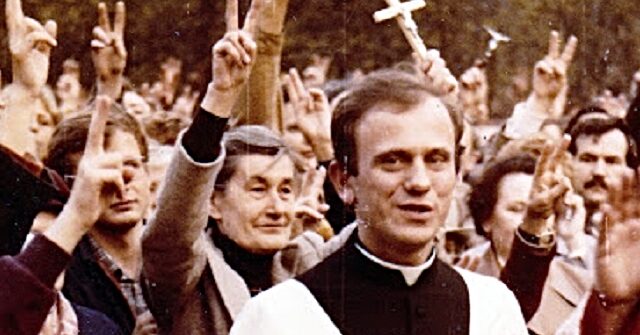President Donald Trump commemorated the 40th anniversary of Father Jerzy Popiełuszko’s martyrdom in a statement acknowledging the priest’s significant role in challenging communism in Poland. Father Jerzy, a Roman Catholic priest and Polish patriot, is praised not only for his dedication to workers’ rights but also for his ultimate sacrifice, which Trump notes had profound implications for the fight against tyranny across Europe. The president emphasized that Popiełuszko’s faith and courage symbolized the struggle for freedom, making his story vital for understanding the resistance against communist oppression.
In his remarks, Trump highlighted Father Popiełuszko’s brutal murder at the hands of the communist secret police, specifically referencing the priest’s unwavering fidelity to God. This act of violence did not merely extinguish a life; it galvanized a movement that contributed to the disintegration of communist control in Europe. Trump reflected on how the priest’s martyrdom instigated a wave of liberation, inspiring both Poles and others suffering under similar regimes to seek freedom. He painted a picture of a historical landscape where Popiełuszko’s resistance stood as a beacon against the pervasive lies and deceit of Marxism.
The president underscored the importance of remembering Father Jerzy as a figure of moral courage and resilience in the face of oppression. He called upon patriots, freedom lovers, and students of history to honor Popiełuszko’s legacy, arguing that his life exemplified the ultimate triumph of good over evil in the context of communism’s defeat in Europe. In this narrative, Father Jerzy is positioned not just as a victim but as a hero and a pivotal force in the fight for human rights and dignity, highlighting the role of spiritual leadership in political movements.
Trump pointed out that the priest’s influence extended beyond his religious duties, smoothly intertwining spiritual guidance with activism against state oppression. He noted that Father Popiełuszko faced relentless harassment and surveillance, which included tapping his phone and following his car, mirroring the tactics employed by oppressive regimes to stifle dissent. This portrayal adds layers to Popiełuszko’s martyrdom, situating it squarely within the dynamics of state power and the persistent struggle of individuals who dare to challenge it.
Reflecting on broader historical contexts, Trump drew parallels between the abuse faced by Father Jerzy and the modern-day challenges advocates for freedom may continue to face. By commemorating the anniversary of Popiełuszko’s death in conjunction with the election of John Paul II to the papacy, Trump connected Poland’s historical fight for sovereignty with contemporary Western values. His statement reinforces a commitment to defending not only Poland’s historical narrative but also to aligning those historical battles with current ideals of human dignity, democracy, and the rule of law.
In conclusion, Trump’s commemoration serves as a reminder of the enduring significance of faith-based resistance in the fight against tyranny. With calls for solidarity among nations committed to freedom and justice, the president’s statement encapsulates an ongoing dialogue about the importance of moral conviction in political struggles. As we reflect on the life and legacy of Father Jerzy Popiełuszko, it becomes clear that his story is one of profound importance in the annals of history, serving as both an inspiration and a warning against the dangers posed by authoritarianism.

